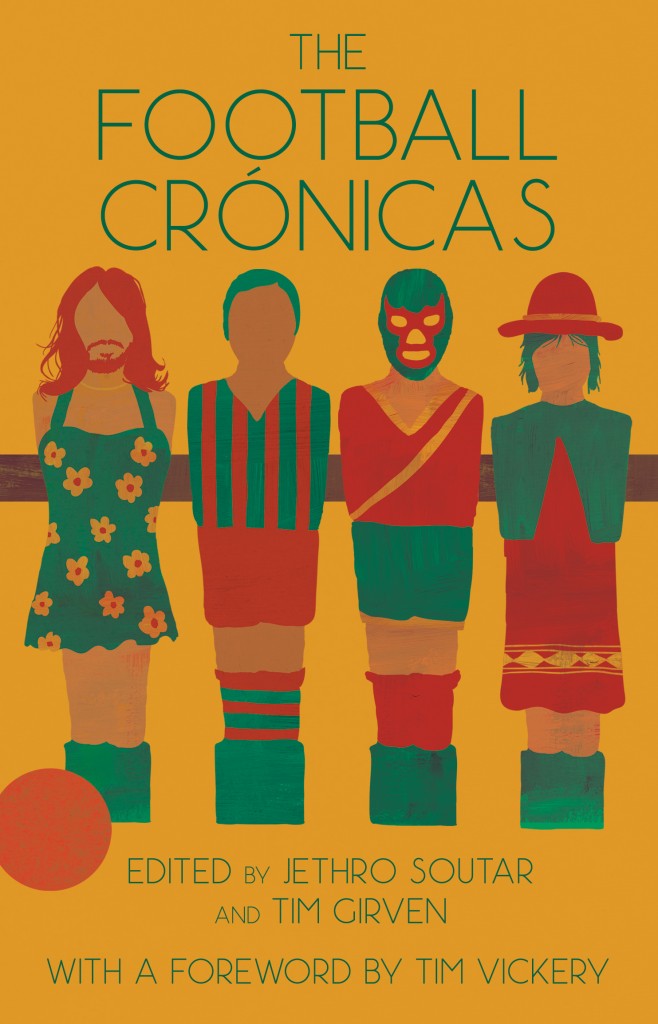
Sheffield United nearly signing Maradona? Fact can be stranger than fiction, especially when it comes to football and Latin America. Football sets its own larger-than-life rules, while dramatic contrasts in Latin America, especially as regards inequality, make for outrageous situations. It’s no surprise that such a continent came up with magic realism, a literary genre that blends the everyday with the fantastical, nor that it inspired the crónica, a hybrid form of journalism that borrows fiction’s narrative structures to tell real tales. Nor is it surprising that football, the most obvious route out of poverty for so many Latin Americans, should provide such rich pickings for crónica writers tackling social issues.
Tim Girven (my co-editor on The Football Crónicas) travels regularly to Latin America and is always on the look-out for new writing. He kept returning with football-themed crónicas for me to read: the tale of a Bolivian neighbourhood kidnapping its own team in protest at social exclusion; the story of a prison team gaining promotion to the Argentinian Football League; a Colombian team formed entirely of transvestites; a park league for Latino immigrants struggling with Brooklyn gentrification. The writing was fresh, vivid, compelling and totally unknown outside Latin America. Tim suggested we gather the pieces together, translate them and publish them as a collection in time for the 2014 World Cup.
We approached numerous publishers with the idea. They said it was an interesting concept, but not commercially viable. This was only to be expected, because we were pitching the perfect storm of book industry fears – short stories, translations, unknown authors, unconventional formats. We translators like to despair at the fact that translated works account for less than 3% of all books published in the UK, but although a lack of promotional boldness from publishers is part of the story, the truth is most readers have fairly unadventurous tastes.
Nevertheless, we wanted to share this incredible writing with other people, perhaps even nurture more adventurous tastes, and we thought there were enough people out there who would appreciate it. We decided to go it alone.
Producing a book is not a hugely expensive business, but there are obviously considerable costs. We were happy to give our time and expertise for free, but we couldn’t expect others to. We needed to make the project rewarding in non-financial ways. We laid down our credentials by declaring the enterprise not-for-profit, with proceeds donated to charity (The Bottletop Foundation, a UK-based organisation that works to empower vulnerable young people in several countries, Brazil in particular). We contacted authors, explaining that we couldn’t afford to pay translation rights, but that being published in English might serve them as a calling card. We approached translators, saying the pieces were short and that it was a chance for them to work on something different.
The book started to take shape, electronically, and publishing it as an ebook was of course an option. But after asking authors and translators to give their talents for free, we wanted the book to be something to be proud of, for it to be a beautiful object in its own right. We emailed printers, designers, copyeditors, typesetters and proofreaders, describing the nature of the project and asking for their friendliest prices. We established a budget and launched a crowdfunding campaign, raising £2,770. We were good to go.
The result of all this endeavour is a collection of 15 short pieces of football-themed writing from Latin America, published by our very own Ragpicker Press. We’ll be presenting the book at Off The Shelf on Sunday 26 October at the University of Sheffield Students’ Union. Come join us to find out more about the book and how it came into being, and to discuss Latin American issues and the art of translation.
Words: Jethro Soutar.



